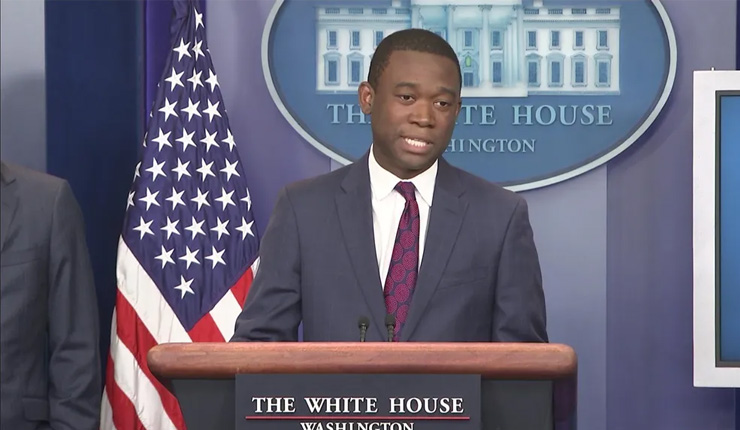U.S., allies plan to impose more strict Russian sanctions
U.S. and its allies are planning to impose new stricter sanctions this week to crack down Russia’s efforts escaping from sanction repercussions, Deputy Treasury Secretary Wally Adeyemo said on Tuesday.
The new sanctions plan to export Russia’s controls aimed to force it to end its war in Ukraine, along with more than 30 countries will attempt to crack down on Russia’s purchases of dual-use goods to secure semiconductors needed for its military.
Adeyemo added that sanctions would also seek to stem the shipment of oil and other restricted goods through bordering countries and include companies and individuals’ ongoing business with Russia, officials will be warning them about facing sanctions.
The bloc will be aiding in the continuous efforts to isolate Russia, said Adeyemo addressing the Council on Foreign Relations, in light of the one-year anniversary of Russia’s invasion of Ukraine this Friday.
“We will force those that fail to implement our sanctions and export controls to choose between their economic ties with our coalition of countries, which represent more than half of the world’s GDP,” stressed Adeyemo.
Adeyemo further assured that the goal is to keep increasing the cost to Russia of evading sanctions and an imposed oil price cap by the G7, alongside Australia, by creating its own alternative ecosystem to sell oil.
The U.S. is attempting to incline the cost of insurance, shipping and other services, which Russia had already been forced to divert billions in funds from the war to pay for.
The U.S. and allies would warn companies and financial institutions in their own countries, as well as India and China, against evading sanctions imposed on Russia.
The bloc will also be warning banks in these countries that they will be facing cut off from Western markets and financial systems if they did not comply with the sanctions.
Russia’s economic data showed an increase better than expected at the beginning of the war, but Western sanctions were forcing the Kremlin to use limited resources to recover its economy.
“One year into this conflict, Russia’s economy looks more like Iran and Venezuela’s, than a member of the G20’s economies,” Adeyemo remarked.
Washington was concerned about the recent deepened ties between Russia and China, but could not provide it with advanced semiconductors it needed to replace military equipment lost since the start of the war, Adeyemo noted.


